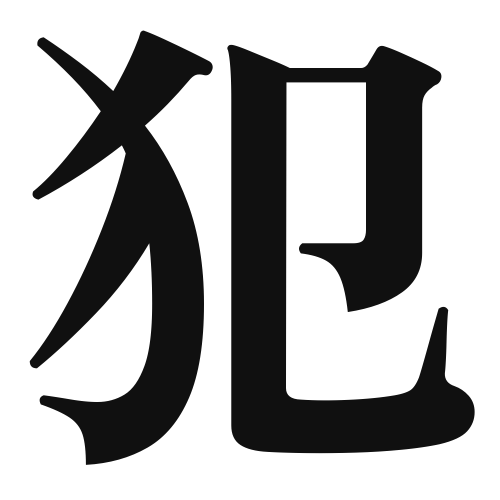1. Overview of Meaning
The kanji “犯” (han) means “to commit” or “to violate.” It is often used in the context of committing a crime or an offense.
2. Formation and Radical
Formation of the Kanji: The kanji “犯” is a compound character that combines elements to convey its meaning. It consists of the radical “犭” (dog) which relates to animals, and the phonetic component “犯” which suggests the action of committing an offense.
Radical: The radical of “犯” is “犭” (dog), which is often associated with actions related to animals or behavior.
3. Examples of Usage
Common Words and Phrases: Some frequently used words that include “犯” are:
- 犯罪 (hanzai) – crime
- 犯人 (hannin) – criminal
- 犯す (okasu) – to commit (a crime)
Example Sentences in Daily Conversation:
- 彼は犯罪を犯した。 (Kare wa hanzai o okashita.) – He committed a crime.
- 犯人はまだ捕まっていない。 (Hannin wa mada tsukamatte inai.) – The criminal has not been caught yet.
4. Synonyms and Antonyms
Similar Kanji: A similar kanji is “罪” (zai), which means “sin” or “crime.” While both relate to wrongdoing, “犯” emphasizes the act of committing, whereas “罪” focuses on the guilt or offense itself.
Opposite Kanji: An antonym could be “守” (mamoru), which means “to protect” or “to guard,” representing the opposite action of committing an offense.
5. Cultural and Historical Background
Relation to Japanese Culture: The concept of “犯” is significant in Japanese culture, particularly in the context of law and morality. It reflects societal views on crime and punishment.
Proverbs and Idioms: One common saying is “犯すべからず” (okasu bekarazu), which translates to “one should not commit [a crime].” This phrase emphasizes the importance of adhering to moral and legal standards.
